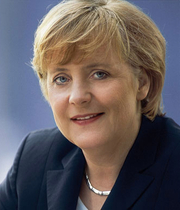Following is the essay you can designate as Volume 10, Number 27 of
This Week’s Clue, based on the e-mail newsletter I have produced since
March, 1997. It would be the issue of July 9.
Enjoy.
The War Against Oil is something every nation can engage in, and which every nation can win.
Germany is a case in point.
For most of my life I was ashamed to be considered German. I preferred to be Irish. My mother is an O’Donnell by birth. There is a romantic story I have told here about a Polish nobleman and a lovely English scullery maid.
My dad was different. When he got drunk he would call himself a "100% Aryan," which I thought a shameful thing to say. Once a year he would make sauerbraten, marinating a chuck roast in vinegar under the basement steps for a full week. He could have killed us (you’re supposed to refrigerate it).
World War I changed German-Americans. Most dropped the hyphenation, and
accepted their heritage being made a joke with beer-swilling
Oktoberfests, lederhosen, and silly dancing. The Blankenhorns of
Hempstead, Long Island proudly contributed three soldiers to the
struggle against Hitler in World War II. My uncle John served in the
infantry from D-Day to VE-Day. My father and my Uncle Thomas also
served. We’re Americans, not German-Americans.
Compared to real Germans, of course, I know little of shame. The sins of that nation, the World War and Holocaust which scarred the 20th century, were paid back in kind. The country was destroyed as it lost the war, it was partitioned, and much of it was occupied for 40 years, with a wall drawn down the center separating Communist East from Democratic West.
I believe the German personality changed after that war, I hope for good. Boris Becker, Steffi Graf, Right Said Fred, and Eurotrash are the faces of the new Germany. (I understand that a distant relative, Herbert Blankenhorn, helped things along. That’s him to the right, when he became Ambassador to Great Britain in the 1960s.)
The struggle of reunification continues, but with an East German woman as chancellor, and a giant AMD chip plant at Dresden, we can see it is proceeding. (And, hey, Cottbus stayed up.)
It’s not about talk. It’s about action. That’s how nations should be judged.
So now Germans are leading again, this time in the struggle to replace
hydrocarbons with renewable sources of fuel. The EU has set a goal of
cutting greenhouse gas emissions 20% by 2020. Germany wants to double
it. A new law passed in 2000 set a goal of 12.5% renewable energy by
2010. That has been surpassed and they’re now aiming for 20% in 2020.
As rotating EU President for the last six months, Chancellor Angela
Merkel (left) made fighting climate change her top priority. How much she
succeeded diplomatically is not for me to say. But every day, she and
her countrymen succeed economically, which is far more important. The
country has a goal of increasing energy efficiency 3% per year, every
year. Germany has created 214,000 jobs in the fields of solar and wind
energy alone.
There is more to do. Germany wants to become the leader in
energy-efficient appliances, in new types of heating systems, in fuel
efficient cars. The result, I predict, will be an export boom, a
specialization, an area where its business can lead as the U.S. leads
in semiconductor technology. That means growth, it means good jobs, it
means exports.
The War Against Oil is not something to talk about. It’s a war that can and must be fought every day, throughout every society.
So far, Germany is leading that fight. I am proud again to call myself
a German-American, and hope my other ancestors (we’re polyglots on my
mom’s side, as I noted) don’t take too much offense.













